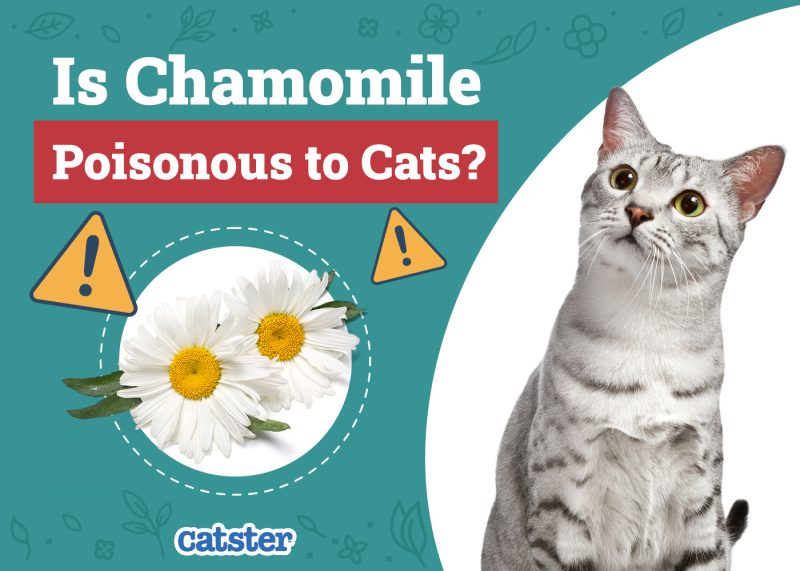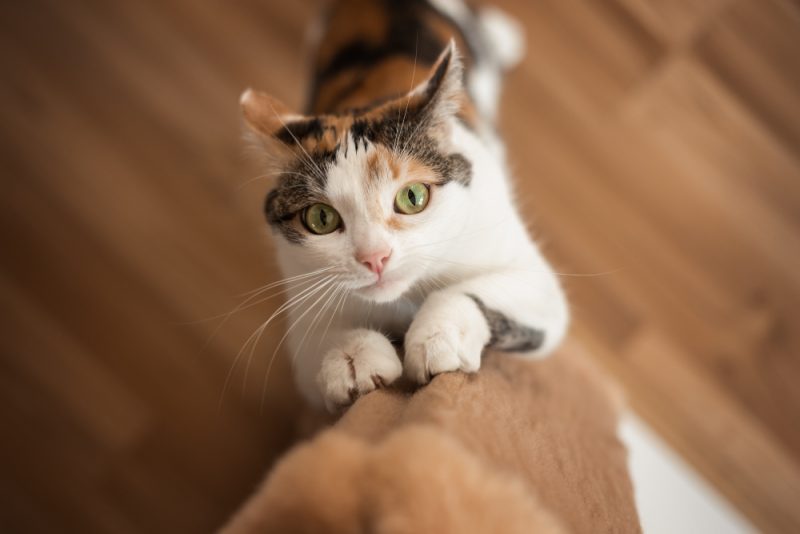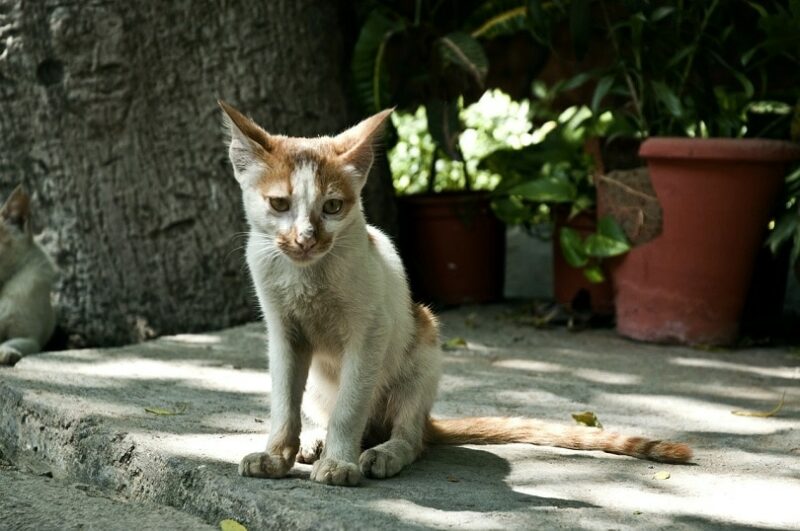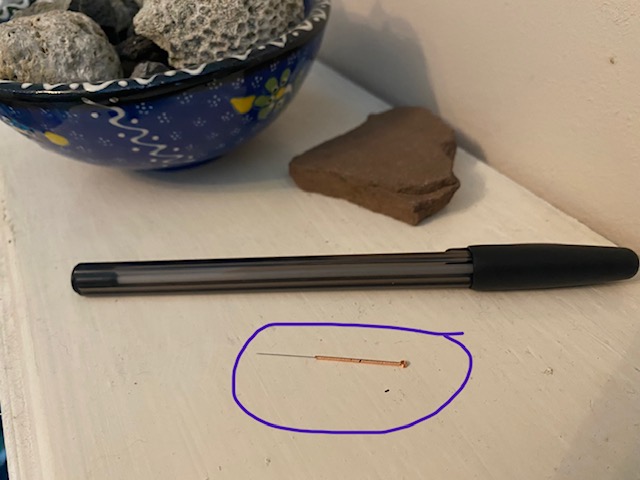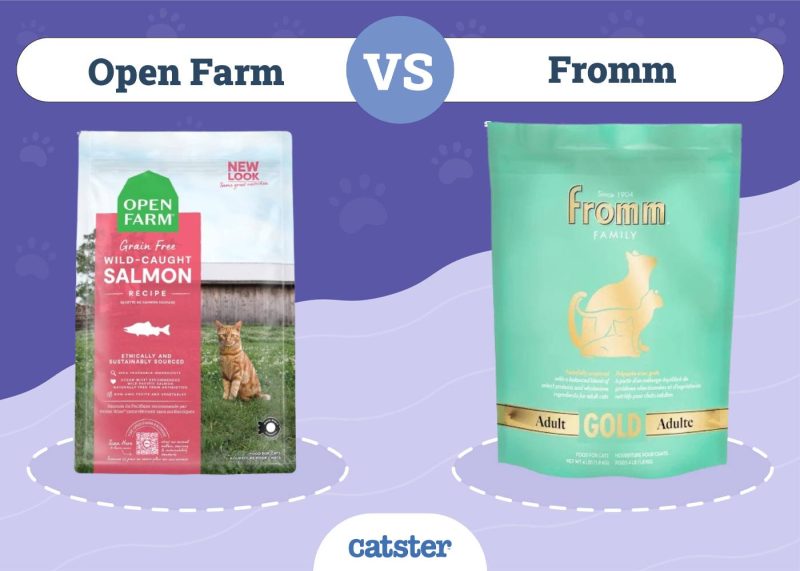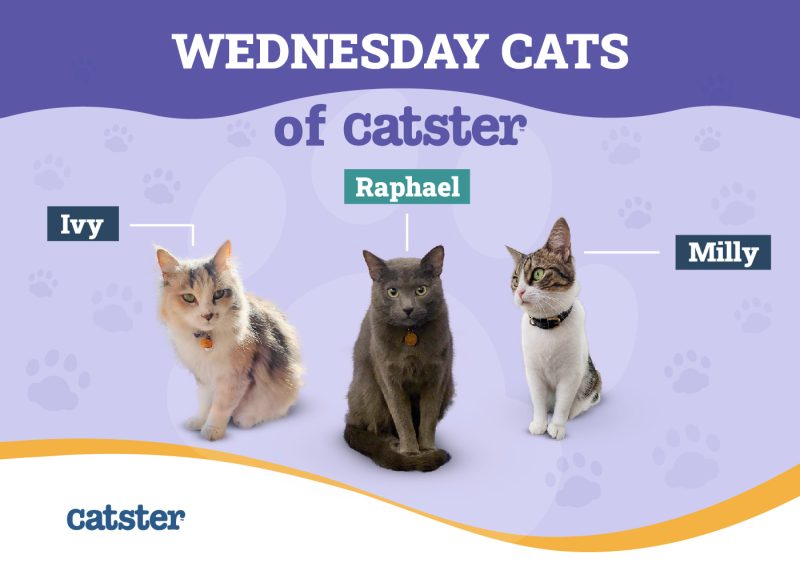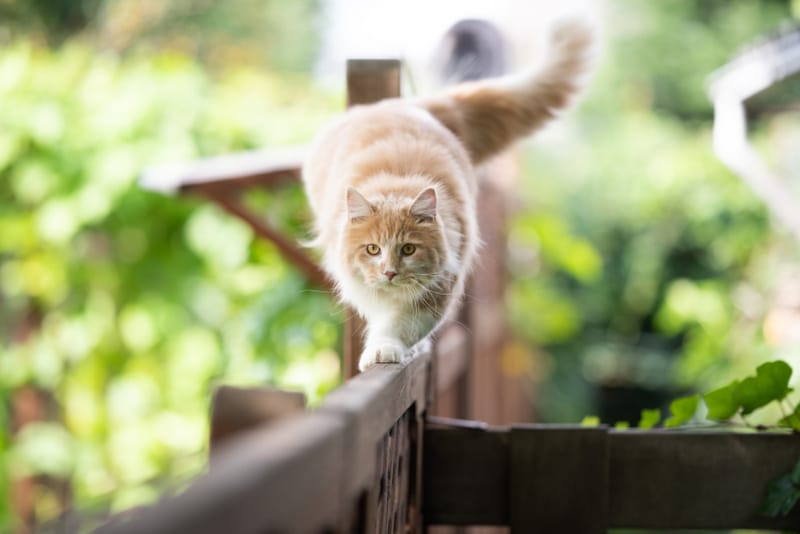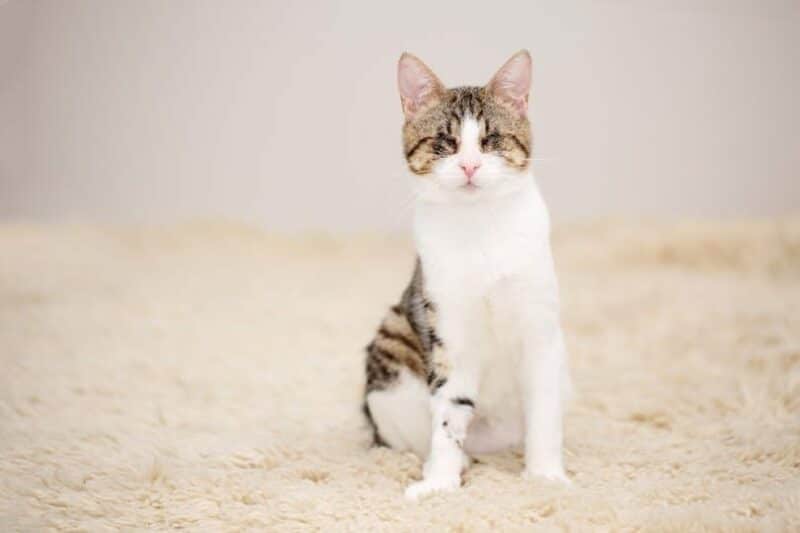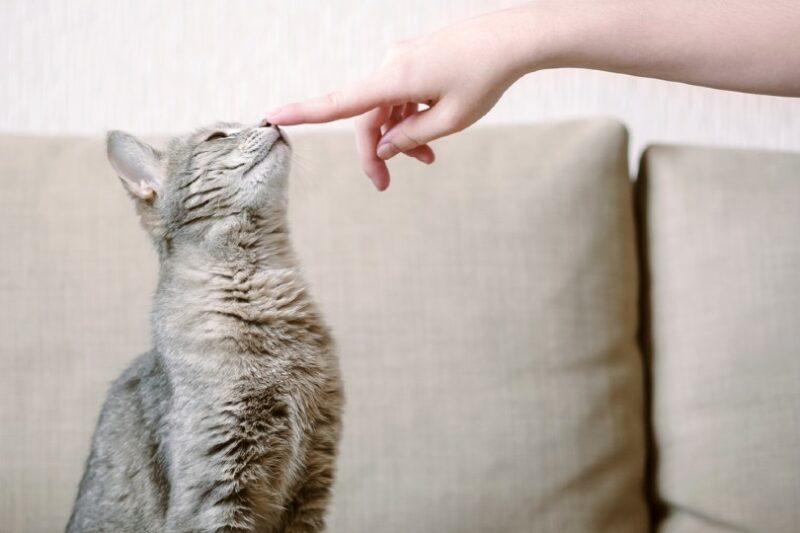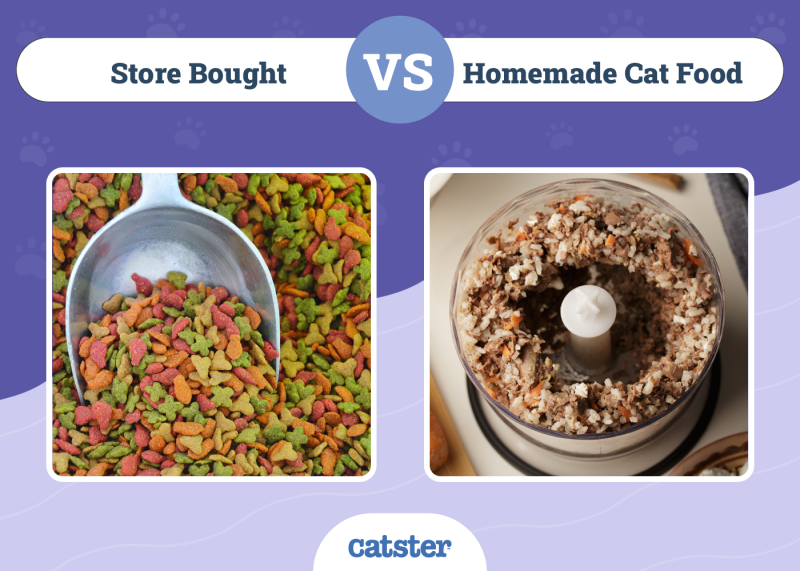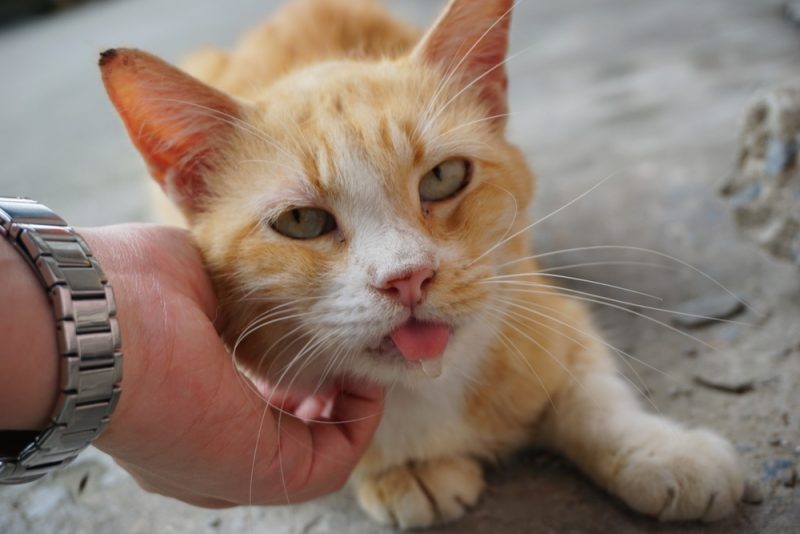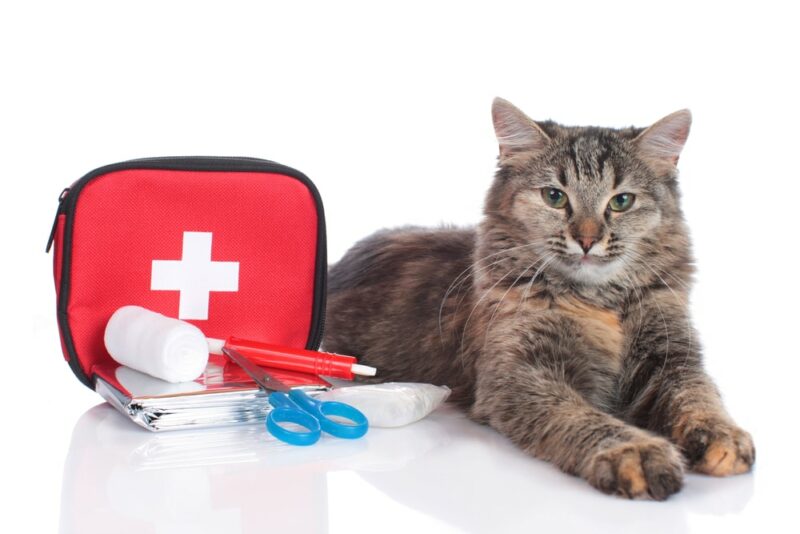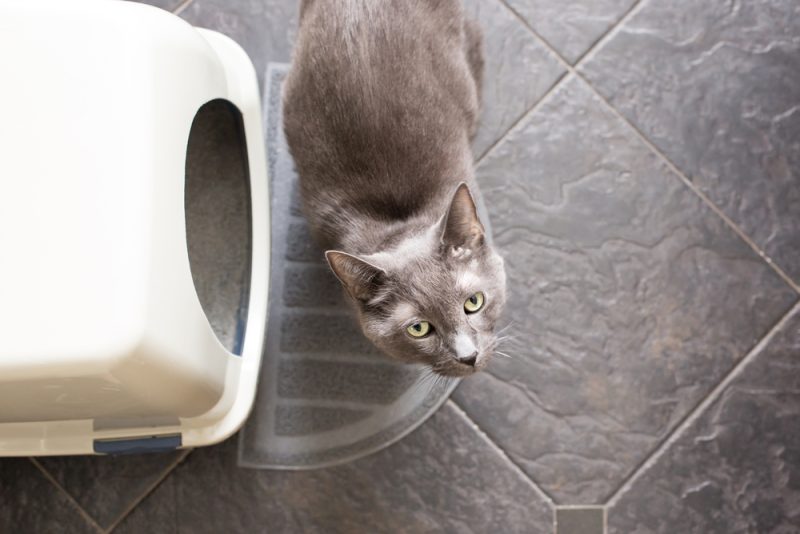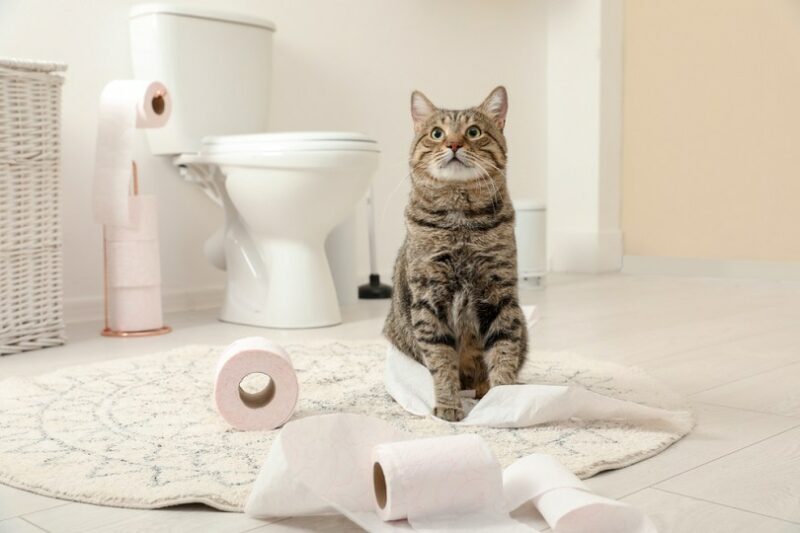In this article
View 2 More +Many cats love to explore the great outdoors—stalking mice, or hiding among the flowers and shrubs of your garden, nibbling away at any plant that entices them. A popular plant your cat may come across on their garden adventures is Matricaria chamomilla (German chamomile), or Chamaemelum nobile (Roman garden chamomile).
The flowers of the chamomile plant look like small daisies that can capture your cat’s attention during its explorations. It’s natural to wonder if this flowering plant is safe for kitties to nibble on, and it’s important to know that chamomile is generally considered poisonous to cats.

What Is the History of Chamomile?
Tea drinkers are very familiar with the purported calming properties of the chamomile plant, as it’s been used in herbal teas for thousands of years. Dating back to the times of the ancient Romans, Egyptians, and Greeks, German chamomile has a long history of being used to treat medical ailments. Anxiety, colds, insomnia, gingivitis, ulcers, and inflammatory bowel disease are just some of the conditions that chamomile is recommended to help treat.
There are very few studies available as to whether chamomile is effective at treating these illnesses and conditions, so science hasn’t made a definitive verdict yet on whether this tiny flower is as helpful as its reputation. It is also difficult however, to find studies showing the toxic effect of chamomile on cats.

Chamomile for Vet Treatment
Vets don’t typically prescribe chamomile for cats, as it can make your cat ill. Chamomile is listed as being toxic to cats, dogs, and horses, but it may be fine in small doses under a vet’s care. Sometimes chamomile herbal supplements are used on dogs for the treatment of gastrointestinal irritation, for relaxing muscles, as an anti-inflammatory, to treat skin conditions, or as a sedative. It’s usually given to the animal via the mouth as a liquid, tea, capsule, or powder. It’s recommended that any use of chamomile should be done under a vet’s supervision, to avoid potential poisoning of your pet.
Signs of Chamomile Poisoning
Chamomile is not only found in gardens; it may also be lurking as tea on your pantry shelves, or as an essential oil in your diffuser. Some cats can be exposed to small doses and have no issues, but other cats may be more sensitive to the plant and could become ill. Potential side effects of chamomile include vomiting, diarrhea, skin conditions, weight loss, and allergic reactions.
If you believe that your cat is displaying any of these symptoms, and you believe they’ve ingested chamomile, monitor it closely and call your vet or poison helpline for advice. Your vet may request that you bring your cat in to be checked out and monitored, to determine necessary treatment.
If you need to speak with a vet but can't get to one, head over to PangoVet. It's an online service where you can talk to a vet online and get the advice you need for your pet — all at an affordable price!


Conclusion
Chamomile appears not only on our pantry shelves, but also in many gardens. So, it’s important to watch your favorite feline, to make sure they don’t ingest this medicinal plant. While it’s long been used as a herbal remedy in humans, for everything from skin ailments to digestive issues, chamomile is considered poisonous for cats, dogs, and horses.
Use of chamomile supplements to treat your pet for any condition should be used under the direction of a vet. Be certain to only give the dose prescribed, and watch for any side effects. If your cat ingested chamomile out in the garden or from your tea stash, monitor your pet closely for vomiting, diarrhea, or allergic reactions, and bring them to the vet if showing symptoms. The bottom line is that it’s generally best for only humans to consume this calming plant, while our feline friends should avoid it to prevent potential health issues.
Featured Image By: Pixabay
